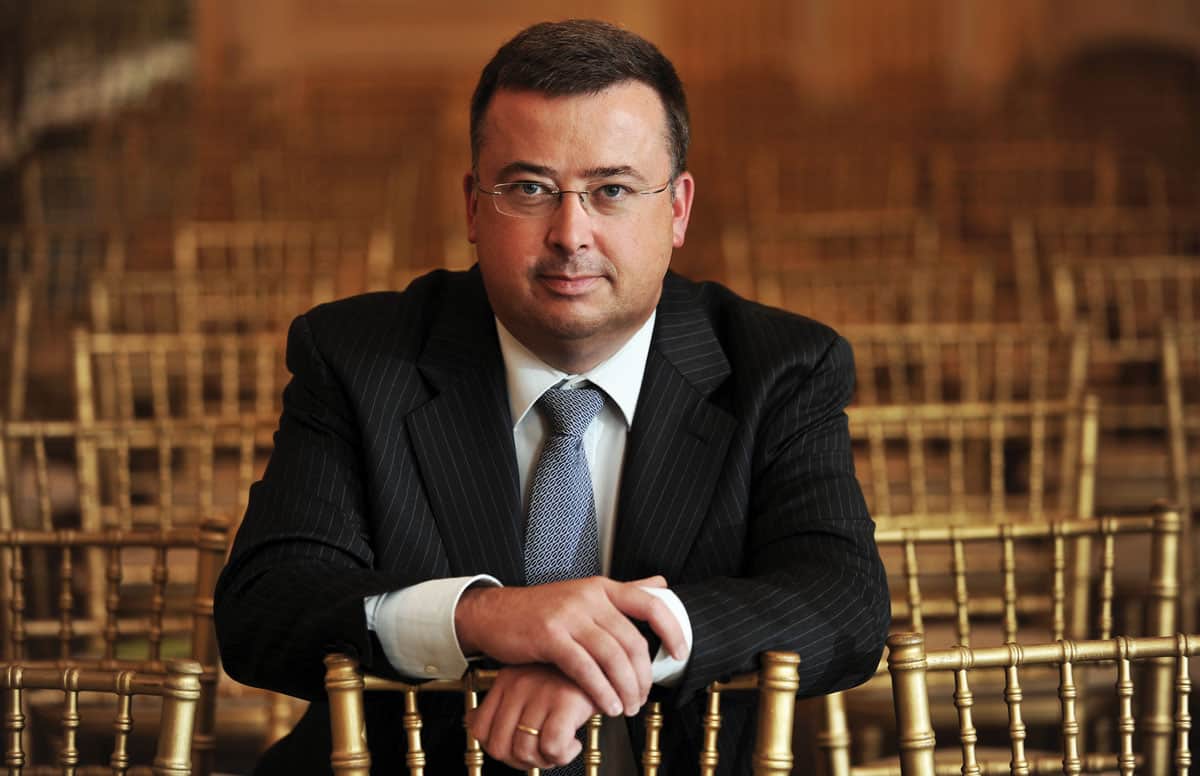Pat Lardner the Irish funds boss has big plans for 2013 to further strenghten Ireland’s proposition as an international funds centre – and get out there and promote it writes Tempus Media’s Kathleen Barrington.
One of the things that most surprises people when they talk to Pat Lardner, chief executive of the Irish Funds Industry Association (IFIA), is the size and reach of the business his member firms are involved in and the importance of this activity to the Irish economy in terms of jobs.
The IFIA’s 100 member firms contribute to the administration of €2.2 trillion of assets. As the largest hedge fund administration centre in the world they service about 40% of the world’s hedge fund assets and 60% of those funds based in Europe are serviced in Ireland; they provide their services to almost 900 investment managers globally and support investors in 167 countries around the world.
The industry is also growing, attracting as much in new monies into traditional investment funds in 2012 as the rest of Europe put together – and twice as much as the rest of Europe put together in 2011. Not bad for an industry which didn’t exist 25 years ago.
The IFIA is the representative body for the funds industry in Ireland and Lardner who took up the reigns in 2012 has the task of shaping and growing the Irish funds industry to ensure it remains the domicile of choice for managers from across the globe.
The IFIA is an association which represents member firms which provide a full range of services that link investment managers with end investors around the world. It counts among its members companies that provide administration, custodial or safe-keeping services, investment managers, legal, audit and tax advisors and a growing range of specialist service firms.
Members include big international names like Citi, State Street, BlackRock, JP Morgan, Morgan Stanley, HSBC, BNP Paribas, Bank of New York Mellon and Northern Trust. And while there is a perception that Dublin is the sole location where the industry operates the reality is that it has grown far beyond the capital. IFIA member firms employ people not just in the International Financial Services Centre (IFSC) in Dublin, but in some 10 counties all over the country. For example, Bank of New York Mellon employs 300 people in Cork; Northern Trust employs 300 in Limerick (and recently annouced that it would be adding 100 people to its workforce there every year for the next few years); and State Street employs over 400 in Kilkenny as well as having sites in Drogheda and Naas.
The €2.2 trillion in funds administered by IFIA members is divided almost evenly between those funds that are ‘physically’ based in Ireland – Irish-domiciled funds – and those based elsewhere in the world but where some of the services used come from Ireland. 2012 saw the industry reach a number of significant miles stones – passing €1 trillion in domiciled funds for the first time and exceeding €2 trillion in total assets for the first time.
It a sign that international investment managers value Irish expertise that they choose to have their funds administered here even though the funds may be based elsewhere. It is also a sign that managers recognise that the Irish funds industry is an international business untouched by domestic economics except to benefit from falling rent and labour costs.
The industry’s ambition is to encourage more funds to domicile here as well.
“Ideally, we want to provide all aspects of creating and looking after an investment fund but equally we have very significant business in providing specific pieces of the value chain,” adds Lardner.
“The industry here is in operation for over 20 years and we have come from a standing start to that €2.2 trillion. We only reached the €2 trillion level during 2012. We have demonstrated growth in the type of services we are providing at a time when financial markets have been pretty weak, so I think that is a big achievement,’’ Lardner says.
Lardner’s job is to work on behalf of his members to build on that achievement by promoting and further raising the profile of the Irish funds industry.
“Our objective is to ensure more activity here, that means more jobs, and a greater number of successful companies that want to invest, not only in new staff but in training and developing existing management so that we have leadership right through the industry.’’
Lardner’s job is partly about deepening and broadening relations in very important existing markets such as the UK and the US, but also about building relationships in countries where there is substantial wealth emerging.
“We also want to reach out internationally to Asia and Latin America where you have rising wealth and rising demand for investment products,’’ Lardner says.
“We are working against a backdrop generally where citizens around the world are taking on more responsibility and more of the investment risk for their own retirement and aged care provision. We are also seeing greater emphasis on transparency and investor protection so our services are a very important part of supporting people to save for the long term with confidence.’’
The IFIA has a packed agenda for 2013 which will keep Lardner and his colleagues busy. On a snowy January morning, he is just back from a hosting a seminar in London for alternative fund managers the previous day. He was heading to Switzerland the following week, to Asia at the end of February and to the United States in March. He was also planning a trip to Latin America later in the year.
When Lardner meets investment managers abroad, he is convincing them that by coming to Ireland they can better connect with and provide excellent services to their investors around the world.
So what is his sales pitch?
It boils down to the fact that Ireland can provide excellent speed and quality of service in a respected regulatory environment and access to a very deep pool of skilled employees. It helps that the Government and the public sector are seen as supportive of the industry and that Ireland’s tax regime is attractive.
“Our relationship with Government and the way we work with the authorities here is very important, whether it be discussing matters of a regulatory nature with the Central Bank or talking to various Government departments. We also work very closely with the promotion agencies like the IDA and Enterprise Ireland,’’ he says. The joint initiative between the IFIA and the IDA has seen IFIA representative offices sprout up around the world in recent years, expanding its reach and presence.
“The Irish funds industry helps investment managers to get the product up and running and distributed to clients. We provide the infrastructure that takes an investment idea and converts it into a product that an investor can buy. We have been doing this type of work, from retail to institutional, from simple to complex for many years and we are very, very good at it.’’
Lardner is seeing strong growth in UCITS, the acronym for Undertakings for Collective Investments in Transferable Securities. The unwieldy term is the name given to collective investment schemes that can be sold throughout the EU on the basis of a single authorisation in one member state.
“It is a highly reputable product structure that was originally developed for retail investors in Europe. UCITS flows have been strong because more investors, both within and outside Europe like the regulated and long standing nature of the structure,’’ he says.
The industry has also seen growth in the Irish QIFs, or Qualifying Investor Funds, which target professional investors and wealthy individuals, usually bigger investors who are seeking more complex investment strategies and who are very capable of assessing risk. Crucially, these QIFs are regulated and are largely recognised as being fit for purpose as new regulations governing alternative investment managers in the EU come into force later this year. Over the last number of years, managers have increasingly turned to the QIF with total assets more than doubling since early 2009 when it first became clear that the new regulation was on the way.
Lardner is particularly pleased with ongoing announcements of new firms locating or expanding their operations here. November saw the announcement that Clearstream, the leading German-owned provider of post-trade services to the financial services sector, is establishing an operation in Dublin to support investment processing for hedge funds was. Of course, there have been many annoucements in 2012 of new companies seeting up in Ireland or singling it out for its centre of excellence such as Deutsche Bank announcing that it was moving its entire European hedge fund administration operation to Dublin and creating a European centre of excellence for hedge funds in the capital.
So has the Irish funds industry anything to fear from competitor countries?
“We are not an emerging player; we are an established power with real credibility and an excellent reputation. We have been at the forefront of development since the mid-1980s and many people have worked exceptionally hard over the years to get to where we are today. We have seen a number of places trying to develop and mimic some of the things that happened here, like Malta for example, but developing a deep network of skills and expertise takes years,’’ Lardner says.
“One of the reasons we speak with such confidence about what we do here is that we didn’t just start doing it yesterday, that we actually have over two decades of experience. The open question is whether you will see the emergence of fund centres in other parts of the world like in Asia for example.’’
Lardner says that successive governments and the public sector generally have been influential in helping to develop the industry. But he says the challenges for us in the next 20 years are different from the last 20 years.
“We have to make sure that the tools and skills we provide to international investment management firms are fit for purpose, whether that be around the type of investment fund structures that we have, whether it be to ensure that our authorisation processes are as quick, clean and clear as possible, that there is certainty in terms of the business environment and availability of labour, that we are making sure in our educational policy that we are producing the same type of highly skilled graduates that have won praise from all over the world because of their quality.’’
“The message that we are promoting internationally about Ireland being open for business, taking responsible action, about putting our house in order, are all very supportive of encouraging additional employment here. We have seen an increase over the last couple of years, not only in people wanting to do more business here, but we have seen companies physically putting shovels in the ground in terms of investments in offices and people which are longer term investments in the country.’’
Lardner is also keeping an eye on the levels of responsibility staff are being given within his member organisations.
“I am also very interested that we have ranges of people who are developing in terms of responsibility, that we have increasing numbers of people, who, while based in Ireland, have responsibilities internationally as well, so that their reach and influence in terms of business decision-making is growing all the time.’’
The IFIA has always placed a strong emphasis on education to make sure the Irish funds industry is developing a broad, deep skill pool at all levels.
“Our partnership with the Institute of Bankers in education has been very important,’’ he says citing the Certificate in Mutual Funds, the Diploma in Mutual Funds, the Fund Executive Management Programme and the Certified Fund Investment Director Programme. The qualifications send out the signal that the Irish funds industry “does things well, but we also do them right.’’
*This article was originally published in Funds Review Ireland 2013.





